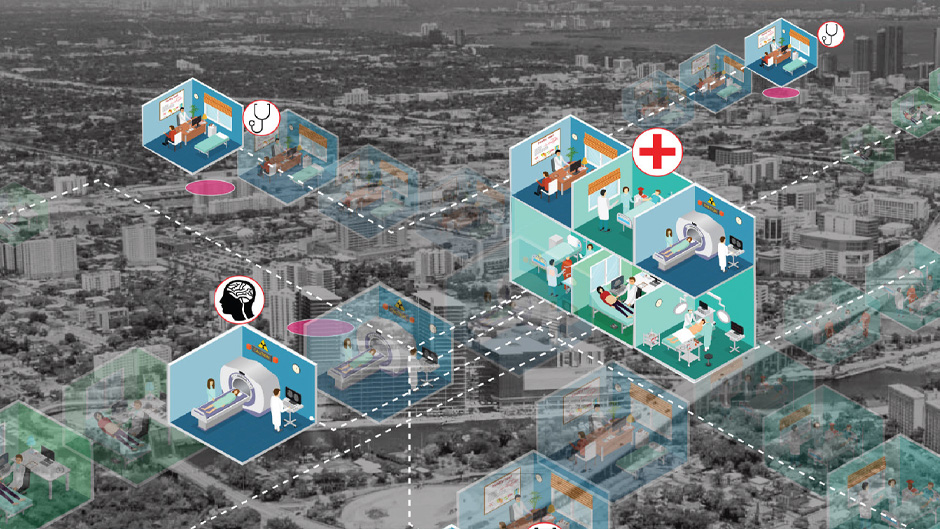How can local government leaders use technology to alert them about the rumblings of a public health crisis well before it threatens the safety of their residents?
This is one of the questions technology experts addressed at the University of Miami’s fourth annual Smart Cities Miami Conference, held on Thursday, April 15 and hosted by the School of Architecture and the Institute for Data Science and Computing (IDSC). At the virtual conference, participants from government, academia, and the private industry learned about the convergence of digital tools available today—as well as some in development—to monitor and improve the health of their residents. They also met with other leaders in the field, to share knowledge about practices in place today that are making cities more digitally connected.
This year’s conference theme was 'health and well-being in the post-pandemic city.' It began with keynote speaker Michael Mylrea, senior technical advisor to the University of Maryland, Baltimore County’s Center for Accelerated and Real Time Analytics (CARTA), and continued with a panel discussion. Moderated by Yelena Yesha, chief innovation officer and head of international relations at IDSC, the panelists included a host of luminaries from leading global corporations who examined opportunities that have evolved throughout the past year for improving health care with smart technology. The group of panelists also discussed new tools in the works.
“The pandemic accelerated the adoption of existing technology and gave us an opportunity to develop new technology to address the many health care challenges posed by the COVID-19 crisis, along with a growing aging population,” said Yesha, who is also a visiting professor of computer science, and an expert in health care cybersecurity. “This panel addressed those converging technologies.”
The conference also featured a UM innovation showcase, where a team made up of professors and researchers from architecture, biochemistry, nanotechnology, chemistry, and computer science, explained an ongoing project they are collaborating on to reimagine healthcare in an expanded territory—beyond the hospital and clinic setting, that includes the home as a site for health checks and therapy.
Finally, Mark Wolff, chief health analytics strategist for the SAS Institute, an international data analytics firm, gave a talk entitled “Your Digital Twin will see you Now—How the Internet of Medical Things and Edge Analytics are Changing Health Care.” Wolff explained how the increasing availability of massive data sets on health care now allows doctors to utilize digital tools to help guide their diagnosis. He also discussed how this may be applied in the future, when a person’s avatar could visit the doctor’s office instead of them having to be physically present.
Learn more: smartcities.miami.edu/

